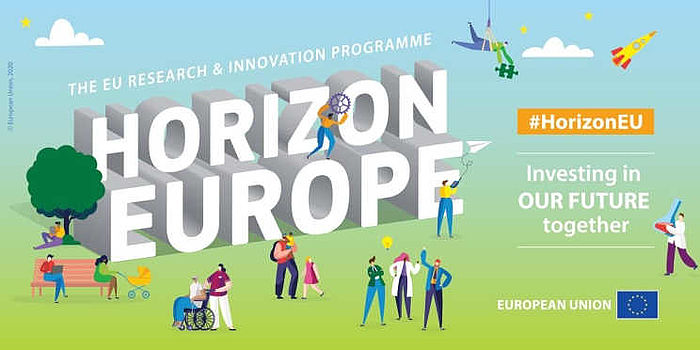
For every euro invested Horizon Europe generates up to €11 in economic gains

With a total budget of €93.5 billion, Horizon Europe is at the heart of European competitiveness and innovation strength. The programme, which is central to Europe's research and innovation landscape, is having a significant impact across a wide range of sectors. The latest evaluation highlights the following key conclusions:
1. Tangible Impact of Horizon Europe:
By January 2025, at its halfway point, Horizon Europe has funded over 15,000 projects with a combined budget of more than €43 billion. Notable initiatives include fuel cell electric buses in European cities, groundbreaking new antibiotics, and accessible artificial intelligence (AI) technologies tailored for the scientific community. These examples showcase the real-world impact Horizon Europe has on improving both societal and economic outcomes across Europe.
2. Scientific Excellence:
An impressive 80% of the projects funded by the European Research Council (ERC) have resulted in scientific breakthroughs or significant advances in their respective fields. Since its inception in 1984, EU research and innovation programmes have supported 35 Nobel Prize winners, demonstrating Horizon Europe's crucial role in fostering scientific excellence and advancing global research.
3. Driving Innovation Across Europe:
Horizon Europe is also a key player in driving innovation within Europe. For every euro invested in innovative companies through the European Innovation Council (EIC) Fund, more than three euros have been attracted from private investors. This highlights the EIC's pivotal role in transforming the way the EU supports start-ups and scale-ups, making it a game-changer for the innovation landscape.
4. Increasing Participation from 'Widening' Countries:
Efforts to address the research and innovation divide between EU Member States are proving effective. The proportion of collaborative projects involving ‘Widening' countries (those with lower research and innovation performance) has increased to 58%, a significant rise from 47% under the previous Horizon 2020 programme. This improvement signals the growing inclusiveness and collaboration within the EU’s research community.
5. Simplifying Administrative Processes:
One of the key features of Horizon Europe is the introduction of lump sum grants, a fixed amount provided to cover the entire project. These grants are estimated to reduce administrative costs for beneficiaries by 14% to 30% over the project’s lifetime. So far, the implementation of lump sum grants has saved up to €63 million across all projects signed. These grants eliminate the need for financial reporting, making them particularly beneficial for small and medium-sized enterprises (SMEs) and newcomers to Horizon Europe.
Next Steps for Horizon Europe:
The Commission plans to use the insights from this interim evaluation to enhance the impact of its policies and programmes. The upcoming Horizon Europe Work Programmes will incorporate immediate measures aimed at simplifying the application process and improving project implementation. Targeted investments will continue to support researchers and entrepreneurs, ensuring the EU remains a global leader in fostering talent and innovation. Improved collaboration will help bring stakeholders closer together, facilitating the translation of research outcomes to market.
Another key goal is to reduce barriers to the launching and scaling-up of innovative companies through initiatives such as the upcoming Start-up and Scale-up Strategy, the European Innovation Act, and the remaining Work Programmes of the EIC.
Background of the Interim Evaluation:
The interim evaluation is based on a broad evidence base, including extensive quantitative and qualitative analysis. It draws on an open public consultation, which received nearly 1,700 replies, over 1,000 interviews with project beneficiaries, Commission and national representatives, and implementing bodies, as well as surveys of both successful and unsuccessful applicants.
Source: EU Commission




